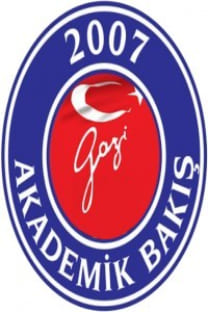Comparative Analysis of Democratization and Civil-Military Relations in Turkey and South Korea till early 2000s
Sivil-Asker İlişkileri, Ordunun Siyasete Etkisi, Demokratikleşme, Türkiye, Güney Kore
Türkiye ve Güney Kore’deki Demokratikleşme ve Sivil Asker İlişkilerinin Karşılaştırmalı Analizi
Civil-Military Relations, Military Involvement in Politics, Democratization, Turkey, South Korea ,
___
- CROISSANT, Aurel, “Riding the Tiger: Civilian Control and the Military in De- mocratizing Korea”, Armed Forces & Society, Vol. 30, No: 3, Spring 2004, 357-381. NORDLINGER, Eric A.; Soldiers in Politics: Military Coups and Governments. Engle- wood Cliffs, NJ: Prentice-Hall, 1977.
- EVIN, Ahmet, “Demilitarization and Civilianization of the Regime” in Politics in the Third Turkish Republic, eds. Metin Heper and Ahmet Evin, Boulder: Westview Press, 1994.
- FINER, Samuel E., The Man on Horseback: The Role of the Military in Politics. Boulder, CO: Westview Press, 1988.
- HEPER, Metin; GUNEY, Aylin; “The Military and Democracy in the Third Turk- ish Republic”, Armed Forces & Society, Summer 1996, Vol. 22, Issue 4, in Academic Search Premier [database on-line], Accessed September 25, 2004.
- HUNTINGTON, Samuel P., The Soldier and The State: The Theory and Politics of Civil-Mili- tary Relations. Cambridge, MA: The Belknap Press of Harvard University Press, 1957. JANOWITZ, Morris, The Military in the Political Development of New Nations: An Essay in Comparative Analysis. Chicago, IL: The University of Chicago Press, 1964.
- KENNEDY, Charles F. and David J. Louscher, “Civil-Military Interaction: Data in Search of a Theory”, in Charles F. Kennedy and David J. Louscher (eds.), Civil- Military Interaction in Asia and Africa. Laiden: Brill, 1991.
- LERNER, D. and P.R. ROBINSON, “Swords and Ploughshares: the Turkish Army as a Modernizing Force”. World Politics, vol.13, no.1, 1960: 14-37.
- NARLI, Nilüfer, “Civil-Military Relations in Turkey”, Turkish Studies, Vol.1, No.1, Spring 2002: 107-127.
- RUSTOW, Dankwart A., “The Army and the Founding of the Turkish Republic”, World Politics, 11, 1959, s. 529-551.
- SAKALLIOĞLU, Ümit Cizre, “The Anomaly of the Turkish Military’s Political Autonomy,” in Comparative Politics Vol.29 No.2, (1997): 138-167.
- SARTORI, Giovanni, The Theory of Democracy Revisited: Part Two. The Classical Issues Chatham, NJ: Chatham House, 1987.
- SUNDHAUSSEN, Ulf, “The Durability of Military Regimes in Southeast Asia” in Zakaria Haji Ahmad and Harald Crouch (eds.), Military-Civilian Relations in South- east Asia. Singapore: Oxford University Press, 1985.
- ISSN: 1307-9778
- Yayın Aralığı: 2
- Başlangıç: 2007
- Yayıncı: Hale Şıvgın
Etniklik ve Uluslararası İlişkiler
Cumhuriyet’in İlk Yıllarında Bekârlık Vergisi’ne İlişkin Tartışmalar
XVI. Yüzyıl Rus Edebiyatında “Fatih Sultan Mehmet Menkıbesi”
Askeri ve Siyasi Yönleriyle İtalyan Donanması’nın Çanakkale Boğazı Harekâtı (18 Nisan 1912)
Bir Amerikan Misyonerinin Balkan Savaşı Analizi
Hitit-Ka ka ilişkilerinde yanıtı aranan bazı sorular
Küreselleşme Olgusu Bağlamında Yeni Güvenlik Algısı
XVI. yüzyıl rus edebiyatında Fatih Sultan Mehmet Menkıbesi
Almanca Kaynaklara Göre Aral Gölü (Kumu) Sorununda Rusya Faktörü
